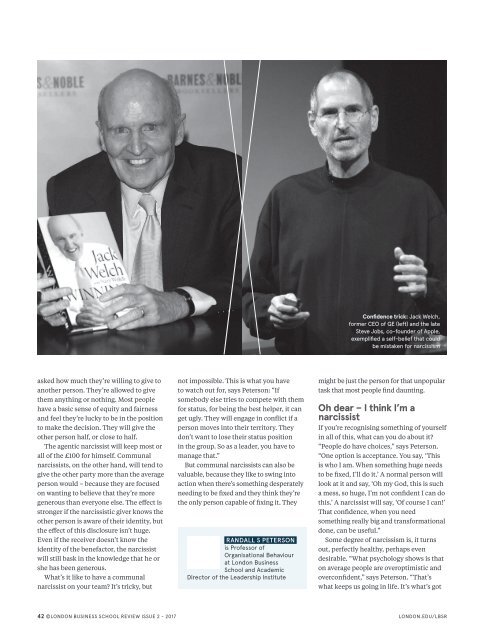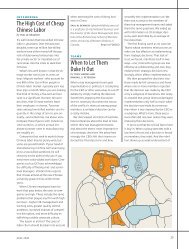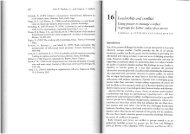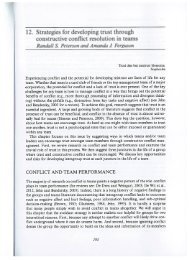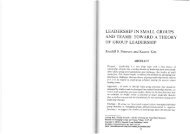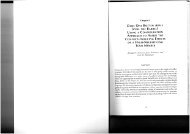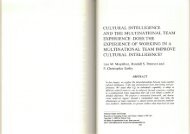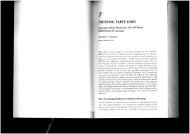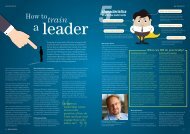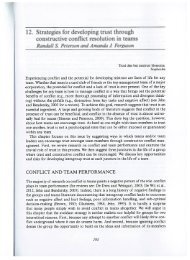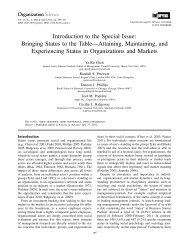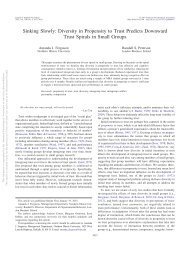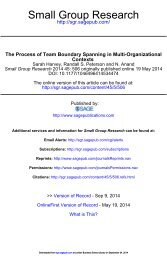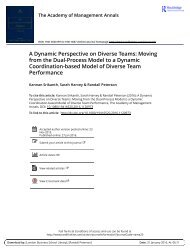When self-confidence is a curse
Not all narcissists need be nightmare colleagues, says Randall S Peterson. Learn to recognise the different types if you want to manage them successfully
Not all narcissists need be nightmare colleagues, says Randall S Peterson.
Learn to recognise the different types if you want to manage them successfully
- No tags were found...
Create successful ePaper yourself
Turn your PDF publications into a flip-book with our unique Google optimized e-Paper software.
Confidence trick: Jack Welch,<br />
former CEO of GE (left) and the late<br />
Steve Jobs, co-founder of Apple,<br />
exemplified a <strong>self</strong>-belief that could<br />
be m<strong>is</strong>taken for narc<strong>is</strong>s<strong>is</strong>m<br />
asked how much they’re willing to give to<br />
another person. They’re allowed to give<br />
them anything or nothing. Most people<br />
have a basic sense of equity and fairness<br />
and feel they’re lucky to be in the position<br />
to make the dec<strong>is</strong>ion. They will give the<br />
other person half, or close to half.<br />
The agentic narc<strong>is</strong>s<strong>is</strong>t will keep most or<br />
all of the £100 for him<strong>self</strong>. Communal<br />
narc<strong>is</strong>s<strong>is</strong>ts, on the other hand, will tend to<br />
give the other party more than the average<br />
person would – because they are focused<br />
on wanting to believe that they’re more<br />
generous than everyone else. The effect <strong>is</strong><br />
stronger if the narc<strong>is</strong>s<strong>is</strong>tic giver knows the<br />
other person <strong>is</strong> aware of their identity, but<br />
the effect of th<strong>is</strong> d<strong>is</strong>closure <strong>is</strong>n’t huge.<br />
Even if the receiver doesn’t know the<br />
identity of the benefactor, the narc<strong>is</strong>s<strong>is</strong>t<br />
will still bask in the knowledge that he or<br />
she has been generous.<br />
What’s it like to have a communal<br />
narc<strong>is</strong>s<strong>is</strong>t on your team? It’s tricky, but<br />
not impossible. Th<strong>is</strong> <strong>is</strong> what you have<br />
to watch out for, says Peterson: “If<br />
somebody else tries to compete with them<br />
for status, for being the best helper, it can<br />
get ugly. They will engage in conflict if a<br />
person moves into their territory. They<br />
don’t want to lose their status position<br />
in the group. So as a leader, you have to<br />
manage that.”<br />
But communal narc<strong>is</strong>s<strong>is</strong>ts can also be<br />
valuable, because they like to swing into<br />
action when there’s something desperately<br />
needing to be fixed and they think they’re<br />
the only person capable of fixing it. They<br />
RANDALL S PETERSON<br />
<strong>is</strong> Professor of<br />
Organ<strong>is</strong>ational Behaviour<br />
at London Business<br />
School and Academic<br />
Director of the Leadership Institute<br />
might be just the person for that unpopular<br />
task that most people find daunting.<br />
Oh dear – I think I’m a<br />
narc<strong>is</strong>s<strong>is</strong>t<br />
If you’re recogn<strong>is</strong>ing something of your<strong>self</strong><br />
in all of th<strong>is</strong>, what can you do about it?<br />
“People do have choices,” says Peterson.<br />
“One option <strong>is</strong> acceptance. You say, ‘Th<strong>is</strong><br />
<strong>is</strong> who I am. <strong>When</strong> something huge needs<br />
to be fixed, I’ll do it.’ A normal person will<br />
look at it and say, ‘Oh my God, th<strong>is</strong> <strong>is</strong> such<br />
a mess, so huge, I’m not confident I can do<br />
th<strong>is</strong>.’ A narc<strong>is</strong>s<strong>is</strong>t will say, ‘Of course I can!’<br />
That <strong>confidence</strong>, when you need<br />
something really big and transformational<br />
done, can be useful.”<br />
Some degree of narc<strong>is</strong>s<strong>is</strong>m <strong>is</strong>, it turns<br />
out, perfectly healthy, perhaps even<br />
desirable. “What psychology shows <strong>is</strong> that<br />
on average people are overoptim<strong>is</strong>tic and<br />
overconfident,” says Peterson. “That’s<br />
what keeps us going in life. It’s what’s got<br />
42 ©LONDON BUSINESS SCHOOL REVIEW ISSUE 2 - 2017 LONDON.EDU/LBSR<br />
LBSR2_p40-43 Confidence CurseNM.indd 42 12/04/2017 10:12


